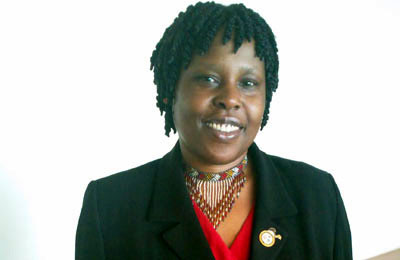Ugandan police have shuttered 13 broadcasters since December, accusing them of misusing power supplies and equipment belonging to the state-run Uganda Broadcasting Corporation (UBC). The widespread allegations of corrupt deals between the state broadcaster and ostensibly private stations reveal more than illicit transactions–they expose a lack of independence within Uganda’s broadcast sector.
More station closures are expected. “So far they have investigated central and western Uganda,” Emmanuel Gyezaho, investigative reporter for the independent Daily Monitor, told me, “but more are to come as police investigators head east.”
Police spokesperson Asuman Mugenyi said the state has lost vast amounts – estimated at millions of shillings — in revenue from clients cutting corners and colluding with UBC staff.
The scandal began last month after former Minister for Presidency Kabakumba Masiko bowed to parliamentary pressure and resigned after her private radio station, Kings FM, was found to have been illegally using state broadcaster equipment. Although Masiko was accused of abuse of office, the station has since been restored to the airwaves, according to local reports. It’s not clear why the allegations against Masiko suddenly came to light, but local journalists have speculated that political wrangling within the ruling party played a role.
The Kings FM scandal evolved into a wider case as the Anti-Corruption Court charged former UBC top brass with abuse of office and investigations were launched into misuse of state property. The abject misuse of office is revealing. For instance, former UBC Board Chairman Chris Katuramu is accused of stealing a UBC mast last year and moving it to another location in Kilembe, where he was constructing a mast for Voice of Toro radio, according to local reports. Police recovered the mast but Katuramu picked it up again and moved it back to Kilembe. The government suspended the former UBC board last year.
Parliament is also questioning current UBC Managing Director Paul Kihiika over how 10 stations disconnected this month failed to pay electricity bills and how they were illegally connected to the UBC mast in the capital’s suburb, Kololo.
Some of the 10 include local broadcasters Radio Bilali, Radio Rutu, Radio Buddu, Voice of Africa, Greater African Radio, Top Radio, BFM, Better FM and WBS TV. But major international broadcasters such as the BBC, Radio France-Internationale (RFI) and Kenya’s Citizen TV were also shuttered. The BBC allegedly owes around 2.4 billion Ugandan Shillings (US$1 million) in unpaid dues, according to local reports.
BBC Corporate Communications Manager Pete Connors told me the BBC has adhered to the terms of its contract with UBC and is looking into the causes of the closure. Similarly, RFI sent a team from France last week to Uganda to investigate the claims by the UBC, RFI correspondent Tonny Singoro told me. The outcome of the investigations is pending. Citizen TV declined to comment on the matter.
“The UBC issue is complex,” said Stephen Ouma, secretary-general of the Uganda Journalist Union. “It’s a mixture of UBC officials entering dubious arrangements with certain radio stations to hire the state’s transmitters and masts but the proceeds are pocketed. Then there are official agreements signed with leading companies like the BBC where money has always been paid directly from London to UBC but payments cannot be traced because top officials embezzle the money.”
Pinpointing blame may be difficult, but it’s clear many stations have managed to evade basic costs for years, local journalists told me. And this collusion managed to thrive due to close links many broadcasters have with the ruling party. Many leading ruling-party politicians and supporters of the party own radio stations all over the country, according to a 2010 study by the Kampala-based Africa Centre for Media Excellence (ACME), a media think-tank and training center.
Investigations have reportedly implicated 35 ministers in suspected abuse of UBC resources, the Daily Monitor reported. “We need to start questioning the high number of private stations we have in this country,” Gyezaho told me. “How do these stations get registered? How do they fund themselves? Many of these stations are owned by ruling party members -especially upcountry.” (The ruling party often relies on rural, upcountry votes during elections.) The situation has gotten so tense that some politicians are actively distancing themselves from any links to the UBC. Last week, Foreign Affairs Minister Sam Kutesa publicly announced that his station, Mbabule FM, does not owe UBC anything and uses its own mast and equipment, the Monitor reported.
“Many take advantage of the UBC by having connections with the government,” ACME General Secretary and media consultant Bernard Tabaire told me. “In the past, there was this idea that if you are part of government you could use the UBC.”
As of December 2010, Uganda had at least 200 broadcasters operating, according to the ACME study – an impressive figure for a country roughly twice the size of the state of Pennsylvania. But how much do these stations reflect the voices of the people as opposed to the voices of politicians? The UBC investigation has erased the veneer of a robust private broadcast sector in Uganda.
